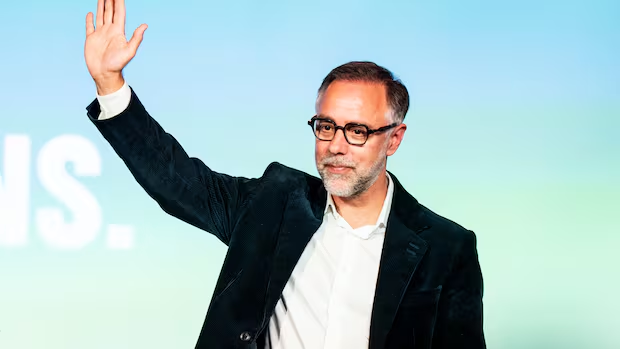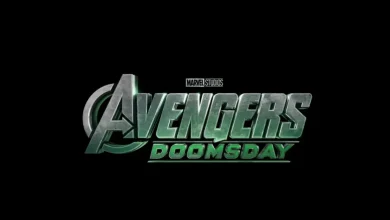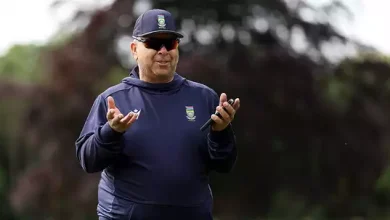What’s next for Projet Montréal? Party members take stock after election loss

It was a difficult election for Projet Montréal, which held power for the last eight years and tried to remake the city in its vision under the leadership of Valérie Plante.
The party, which began as a grassroots movement in the Plateau neighbourhood 25 years ago, managed only to hold on to the denser, more urban boroughs in the centre and south end of the city.
It retained borough mayor seats in Le Plateau–Mont-Royal, Rosemont–La Petite-Patrie, Villeray–Parc-Extension and Le Sud-Ouest, but lost several others it had gained further from the city centre in recent years, including Ahuntsic–Cartierville, Mercier–Hochelaga-Maisonneuve and Côte-des-Neiges–Notre-Dame-de-Grâce.
In his concession speech, Luc Rabouin struck an optimistic tone about the future of the progressive, environmentally focused party, before adding he would resign as its leader.
“Thousands of Montrealers voted to build a fairer, greener city with Projet Montréal,” said Rabouin.
“All this mobilization allowed us to achieve respectable results tonight, in the face of a very strong wind of change.”
That wind of change helped propel Soraya Martínez Ferrada to victory with 43 per cent of the vote and a majority of seats on council for her party, Ensemble Montréal.
WATCH | Who is Montreal’s new mayor?:
She’s Montreal’s 1st Latino mayor. Who is Soraya Martinez Ferrada?
Ensemble Montréal Leader Soraya Martinez Ferrada is taking over the city’s top job from Projet Montréal Leader Valérie Plante, who has been in office since 2017. Martinez Ferrada arrived in Montreal at 8 years old as a political refugee. In 2015, she jumped into federal politics, serving as a Liberal MP for Hochelaga and was later appointed to Justin Trudeau’s cabinet.
Discontent among voters
Her campaign slogan, “Listen and Act,” appeared to resonate with voters who felt unheard on issues such as the move to biweekly garbage pickup in some boroughs and the installation of new bike paths in others.
There was also discontent over more systemic problems in the city, from the rising cost of housing to congestions on the roads.
Overall, Rabouin received 38 per cent of the vote, down from 52 per cent four years earlier, when Plante won a second mandate.
Cathy Wong, who held the Projet Montréal stronghold of Le Plateau–Mont-Royal, acknowledged that her party made a lot of changes that “did not have unanimity.”
She said the result shows Montrealers wanted change but stressed that doesn’t mean Martínez Ferrada’s party has carte blanche to undo what Projet accomplished.
“Projet Montréal got 35 per cent of the voters, so we will continue to represent those who believe in a greener Montreal,” she told CBC Montreal’s Daybreak.
“We are a movement of citizens that are involved in our boroughs. That movement will continue.”
As the city took in the results on Monday, one Projet Montréal supporter said he was prepared to give the new administration a chance.
“Promises in election campaigns are cheap,” said Paul Gioff, a resident of Notre-Dame-de-Grâce.
“I think in the previous administration, some good things were done, but a lot of results were not achieved.”
Another supporter said they were hopeful Martinez Ferrada wouldn’t undo Projet’s efforts to transform Montreal into a greener, more bike friendly city.
WATCH | What’s next for Projet Montréal?:
After losing the election and its leader, where does Projet Montréal go from here?
The party held onto its stronghold boroughs of the Plateau-Mont-Royal, the Sud-Ouest, Rosemont–La Petite-Patrie and Villeray–Saint-Michel–Parc-Extension, but lost some key races in Côte-des-Neiges—NDG and Mercier-Hochelaga-Maisonneuve. It also has a crucial decision to make about who will lead the party.
Lessons from the loss?
Guedwig Bernier, a former president of Projet Montréal, said his party could learn a lesson from the results in cities such as Longueuil, where Catherine Fournier, a young, progressive mayor, easily secured a second term.
Fournier was able to present a vision that won over voters by softening her message, Bernier said. He added that, “for me, the progressive agenda is still there for Montreal.”
Martinez Ferrada also presented a difficult challenge for Projet, given her political experience and outlook (she describes herself as “progressive but pragmatic”).
In Bernier’s view, Projet would have fared better in Sunday’s election had it been able to bring Craig Sauvé back into the party, rather than have him siphon away their votes as a mayoral candidate with Transition Montréal. Sauvé received almost nine per cent of the vote on Sunday.
Sauvé was a city councillor with Projet Montréal from 2013 until he withdrew from the party in 2021 after a sexual assault allegation — one he has consistently denied,
“If the two were together, their votes would have probably won the mayor and so, probably a mistake by Projet,” Bernier said.
The party will need to take its time to select a leader to take her on, Bernier said.
Wong said the party would meet in the coming days to take stock of the loss and do a “post-mortem.”
Later Monday, a spokesperson for Projet Montréal said they would not be providing any more interviews for the remainder of the week.




